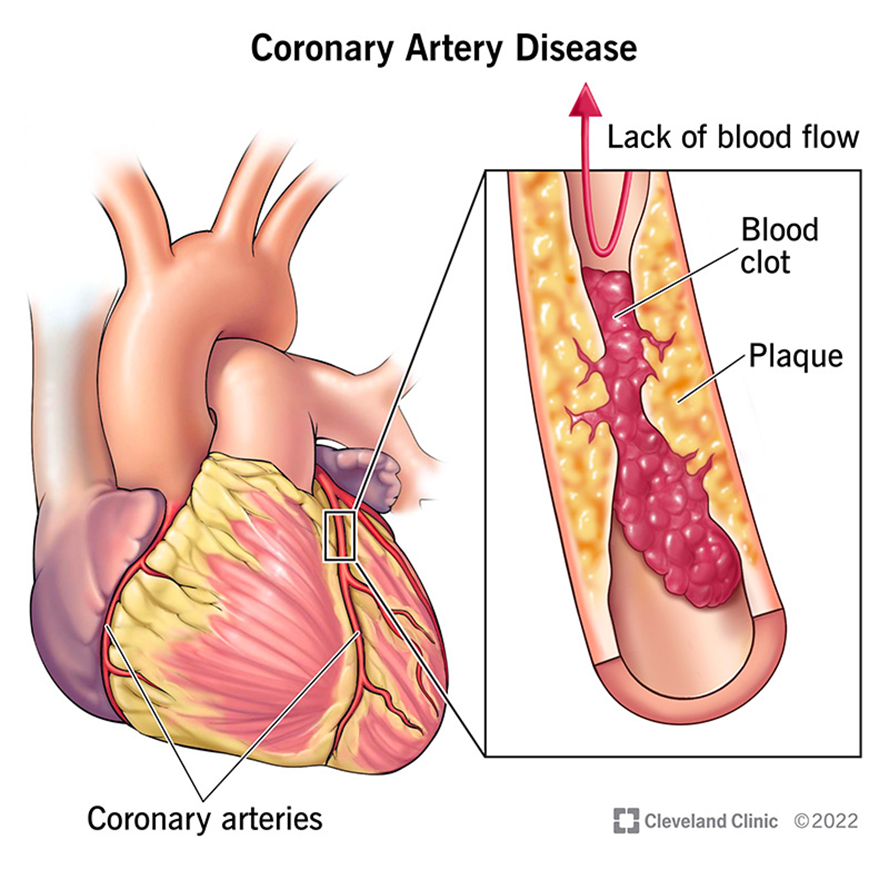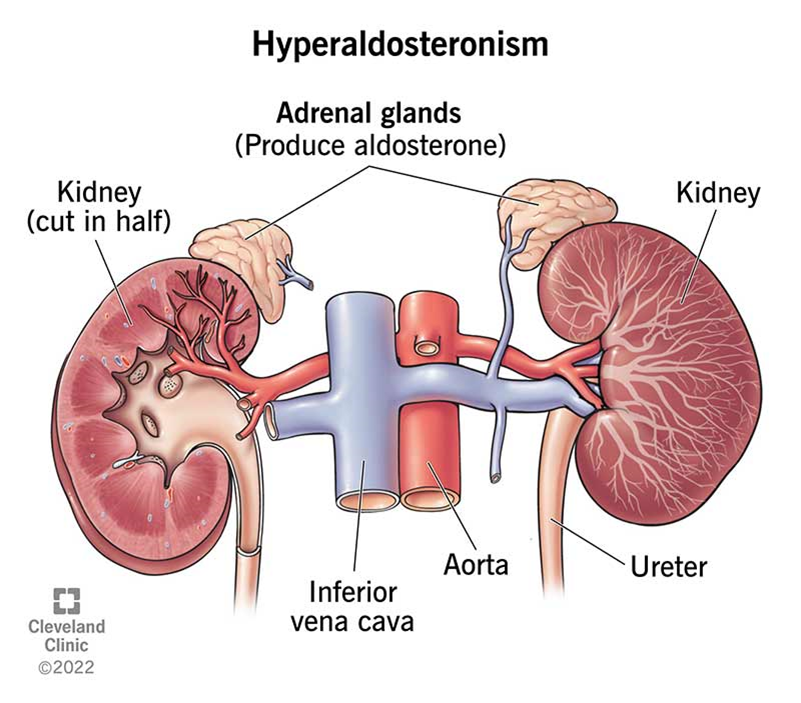Before administering the initial dose of sumatriptan succinate to a client with a migraine headache, it is most important to determine if the client’s history includes which problem?
Irritable bowel syndrome.
Coronary artery disease.
Seasonal allergic rhinitis.
Type 2 diabetes mellitus.
The Correct Answer is B
Choice A reason:
Irritable bowel syndrome (IBS) is not a primary concern when administering sumatriptan succinate. While IBS can cause significant discomfort and affect the quality of life, it does not pose a direct contraindication to the use of sumatriptan. Sumatriptan is primarily metabolized in the liver and excreted by the kidneys, and its use is not significantly impacted by gastrointestinal conditions like IBS1.
Choice B reason:
Coronary artery disease (CAD) is a critical consideration before administering sumatriptan succinate. Sumatriptan is a selective serotonin receptor agonist that causes vasoconstriction of cranial blood vessels to relieve migraine symptoms. However, it can also cause vasoconstriction in coronary arteries, which can be dangerous for clients with CAD. This can lead to serious cardiovascular events such as myocardial infarction or angina. Therefore, it is essential to assess for any history of CAD or other significant cardiovascular conditions before administering this medication.

Choice C reason:
Seasonal allergic rhinitis is not a significant concern when administering sumatriptan succinate. While allergic rhinitis can cause symptoms such as nasal congestion, sneezing, and itching, it does not interact with the pharmacological action of sumatriptan. Therefore, it is not a contraindication for the use of this medication.
Choice D reason:
Type 2 diabetes mellitus is not a primary concern when administering sumatriptan succinate. Although diabetes can increase the risk of cardiovascular disease, the presence of diabetes alone does not contraindicate the use of sumatriptan. However, it is important to consider the overall cardiovascular risk profile of the client, including any complications related to diabetes.
Nursing Test Bank
Naxlex Comprehensive Predictor Exams
Related Questions
Correct Answer is D
Explanation
Choice A Reason:
Spironolactone is a potassium-sparing diuretic often prescribed for heart failure. While monitoring for side effects is important, excessive bruising is not a common side effect of spironolactone. Bruising might be more relevant for patients on anticoagulants or those with clotting disorders.
Choice B Reason:
Replacing salt with a salt substitute is not advisable for patients on spironolactone. Many salt substitutes contain potassium chloride, which can lead to hyperkalemia (high potassium levels) when combined with spironolactone. Hyperkalemia can cause serious cardiac issues, including arrhythmias.
Choice C Reason:
Covering the skin before going outside is not specifically related to the use of spironolactone. This advice might be more relevant for medications that cause photosensitivity, such as certain antibiotics or diuretics like hydrochlorothiazide, but not spironolactone.
Choice D Reason:
Limiting the intake of foods high in potassium is crucial for patients taking spironolactone. Spironolactone can increase potassium levels in the blood, and consuming high-potassium foods (like bananas, oranges, and potatoes) can exacerbate this effect, leading to hyperkalemia. Hyperkalemia can be dangerous and cause symptoms such as muscle weakness, fatigue, and cardiac arrhythmias.

Correct Answer is C
Explanation
Choice A Reason:
I should take this medication only when I am having an asthma attack: This statement is incorrect because montelukast is not a rescue medication. It is a maintenance medication designed to be taken regularly to prevent asthma symptoms and attacks. Using it only during an asthma attack would not provide the intended preventive benefits.
Choice B Reason:
I will not need to use my inhalers twice a day when I start this medicine: This statement is also incorrect. Montelukast is often used as an adjunct therapy and does not replace the need for inhalers, especially for those with moderate to severe asthma. Inhalers, particularly corticosteroids, remain a critical part of asthma management.
Choice C Reason:
I will take the tablet every evening to control my asthma: This statement is correct. Montelukast is typically prescribed to be taken once daily in the evening. This helps to control asthma symptoms and prevent attacks by reducing inflammation and constriction in the airways.
Choice D Reason:
This medication will stop an asthma attack immediately: This statement is incorrect. Montelukast is not a fast-acting medication and will not provide immediate relief during an asthma attack. Fast-acting bronchodilators, such as albuterol, are used for immediate relief.
Whether you are a student looking to ace your exams or a practicing nurse seeking to enhance your expertise , our nursing education contents will empower you with the confidence and competence to make a difference in the lives of patients and become a respected leader in the healthcare field.
Visit Naxlex, invest in your future and unlock endless possibilities with our unparalleled nursing education contents today
Report Wrong Answer on the Current Question
Do you disagree with the answer? If yes, what is your expected answer? Explain.
Kindly be descriptive with the issue you are facing.
